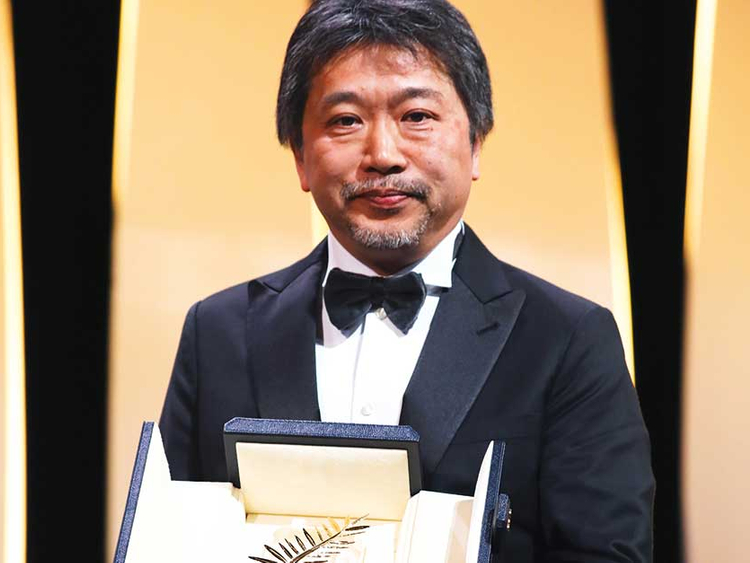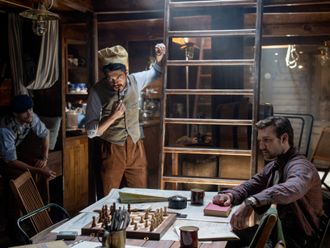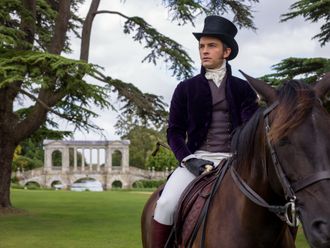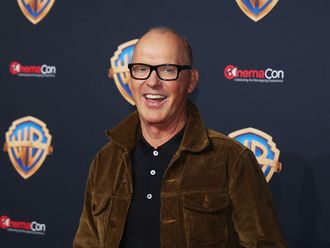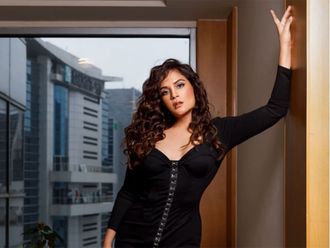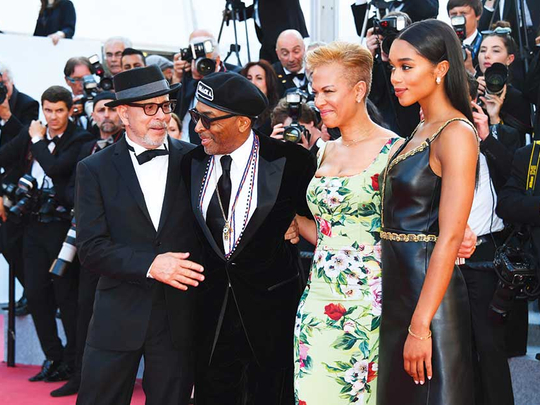
Japanese director Hizokazu Kore-eda’s tender portrait of a poor, improvised family Shoplifters has won the Palme d’Or, the top award at the Cannes Film Festival.
At the closing ceremony on Saturday for the 71st Cannes, the Cate Blanchett-led jury selected one of the festival’s most acclaimed entries, one hailed as a modest masterpiece from a veteran filmmaker renowned for his delicate touch. Shoplifters is about a small-time thief who takes a young, alone girl home to his family; after seeing scars from abuse, they decide to keep her and raise her as their own.
While many speculated that the Cate Blanchett-led jury might award only the second Palme d’Or to a film directed by a woman, the most likely contender — Lebanese director Nadine Labaki’s Capernaum — was instead given Cannes’ jury prize. The film drew a rousing standing ovation but less enthusiastic critic reviews for its tale of a 12-year-old boy living in poverty who sues his parents for neglect.
Spike Lee’s BlacKkKlansman, the highest profile American film in competition at Cannes, was awarded the grand prize. The film ignited the French Riviera festival with its true tale of a black police detective who infiltrated the Ku Klux Klan. Lee connected the film to modern day with real footage from last year’s violent white supremacist march in Charlottesville, Virginia.
“It blew us out of the cinema,” said Blanchett of BlacKkKlansman.
GENDER DEBATE
The 12-day festival, the first since the downfall of film mogul Harvey Weinstein (for decades an annual fixture in Cannes), was shaken by debate over gender equality in the film industry and at Cannes. In a striking rally, 82 women — the same number of female filmmakers to ever be selected to Cannes competition line-up — stood on the Palais red-carpet steps, as Blanchett said, “a symbol of our determination to change and progress.”
Some changes were swift. Just days later, with Blanchett’s jury looking on, Cannes’ Artistic Director Thierry Fremaux signed a pledge to make the festival’s selection process more transparent and promised other measures to improve the festival’s record of including female filmmakers. Three of this year’s 21 films in competition were directed by women.
Polish filmmaker Pawel Pawlikowski took best director for his follow-up to the Oscar-winning Ida, Cold War. Like Ida, Cold War is a black-and-white period film that delves into Polish history. The first Polish film in Cannes’s competition in 37 years, Cold War is about an up-and-down romance in post-war Poland and Paris, behind and outside the Soviet Iron Curtain.
Best actress went to Samal Yeslyamova for Kazakh writer-director Sergey Dvortsevoy’s Ayka. Taking best actor was Marcello Fonte for Matteo Garrone’s Dogman, an award presented by fellow Italian actor Roberto Benigni.
The prize for best screenplay was split between Italian writer-director Alice Rohrwacher’s time-warped fable about a poor farm boy in rural Italy Happy as Lazzaro and Nader Saeivar and Jafar Panahi’s script for Three Faces.
Panahi has been banned from travelling outside Iran since he was arrested for participating in “propaganda against the regime” in 2010 after supporting mass protests over the country’s disputed 2009 election. Both Panahi and Russia’s Kirill Serebrennikov were unable to attend their Cannes premieres because they are barred from travelling out of their home countries. A “Palme d’Or Speciale,” a special award not previously awarded, was given to Jean-Luc Godard for “continually striving to define and refine what cinema can be,” said Blanchett. Godard’s Image Book is a film essay collage that contemplates the West’s relationship to the Arab world. The 87-year-old French filmmaking legend called into his Cannes press conference via FaceTime.
The closing ceremony came ahead of the premiere of Terry Gilliam’s The Man Who Killed Don Quixote. Famously victim to countless delays and debacles, the film took nearly 30 years for Gilliam to complete. And its Cannes premiere was still almost cancelled because of an injunction sought by producer Paolo Branco, who insisted the festival needed his permission. French courts last week denied Branco’s request, allowing the screening to move forward.
Last year’s Palme d’Or winner was Ruben Ostlund’s The Square, which went on to be nominated for best foreign language film at the Academy Awards.
——————————
Full list of winners
Palme d’Or: Shoplifters by Hirokazu Kore-Eda (Japan)
Grand Prix: BlacKkKlansman by Spike Lee (US)
Jury Prize: Capernaum by Nadine Labaki (Lebanon)
Special Palme d’Or: Jean-Luc Godard (France, Switzerland) for The Image Book
est director: Pawel Pawlikowski (Poland) for Cold War
Best actress: Samal Yeslyamova (Kazakhstan) for Ayka
Best actor: Marcello Fonte (Italy) for Dogman
Best first film: Girl by Lukas Dhont (Belgium)
Best short film: All these Creatures by Charles Williams (Australia)
Special mention for short film: On The Border by Wei Shujun (China)
Best screenplay (tied): Director Alice Rohrwacher (Italy) for Happy as Lazzaro and director Jafar Panahi (Iran) and scriptwriter Nader Saeivar (Iran) for Three Faces



